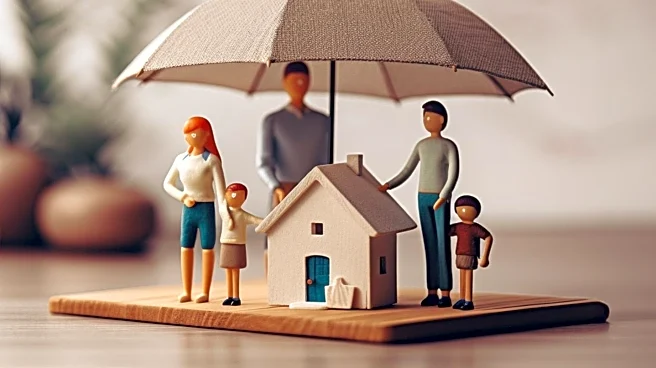What's Happening?
A family is facing turmoil after a niece, referred to as Justine, sent a four-page letter filled with accusations and insults towards her relatives. Justine, who is 55 and divorced, has been emotionally
reliant on her family, particularly her uncle and his wife, for support. The letter has caused significant distress, with Justine's son expressing anger over the unfounded claims. The family is now grappling with how to address the situation, as Justine's erratic behavior has already led to her daughter distancing herself. The uncle, who feels a brotherly connection to Justine, is advocating for reconciliation, while his wife is torn between supporting her children and mending family ties.
Why It's Important?
This situation highlights the impact of mental health issues on family dynamics. Justine's behavior suggests potential mental illness, which, if unaddressed, could further alienate her from her support system. The family's struggle to balance compassion with self-protection underscores the challenges many face when dealing with loved ones who exhibit troubling behavior. This case also reflects broader societal issues regarding mental health awareness and the importance of seeking professional help. The family's decision on how to proceed could set a precedent for handling similar situations, emphasizing the need for understanding and support in the face of mental health challenges.
What's Next?
The family is considering ways to encourage Justine to seek professional help, which could be crucial in resolving the conflict. The uncle's wife is prepared to forgive Justine if she acknowledges her issues and seeks treatment. Upcoming family gatherings may serve as a test of the family's ability to navigate the tension and potentially mend relationships. The situation may also prompt discussions on mental health within the family, potentially leading to increased awareness and support for those struggling with similar issues.
Beyond the Headlines
This incident raises questions about the stigma surrounding mental health and the barriers to seeking help. It highlights the need for open conversations about mental health within families and communities. The family's experience could inspire others to address mental health issues proactively, fostering a more supportive environment for those in need. Additionally, it underscores the importance of empathy and understanding in maintaining family bonds amidst challenging circumstances.











